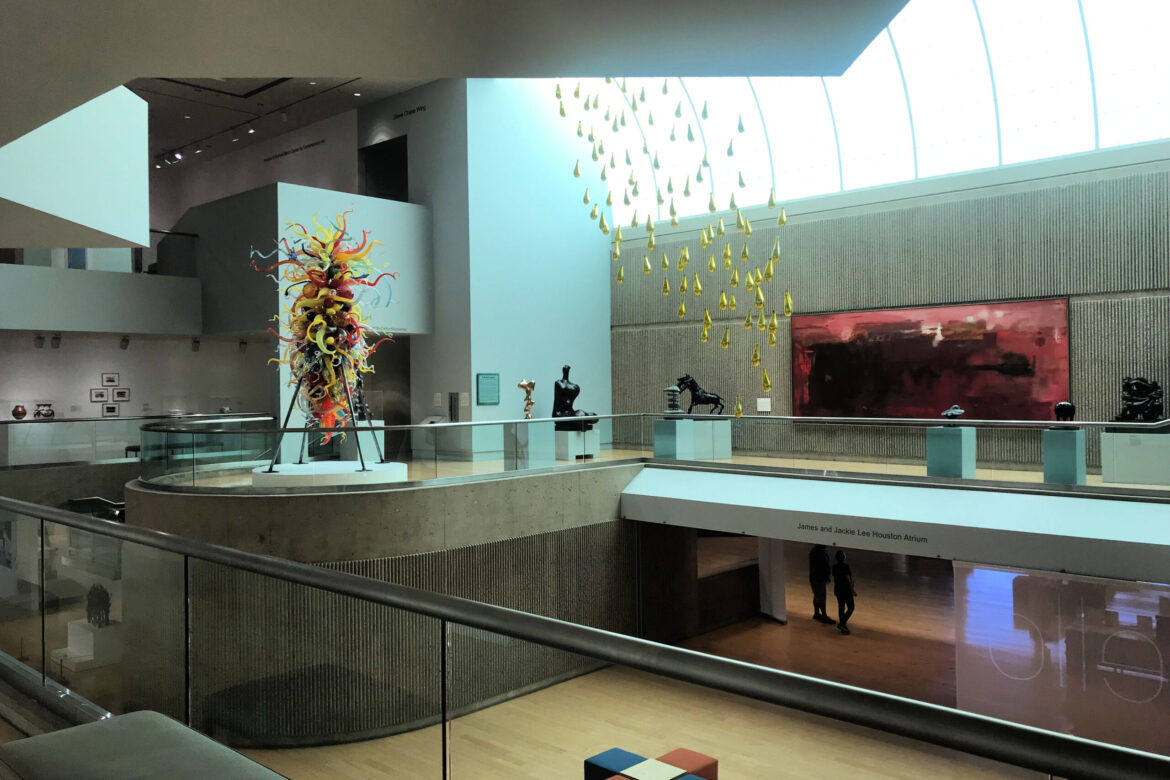
Palm Springs Art Museum: Impressionism to Abstract Expressionism
On a recent visit to Palm Springs, I was pleasantly surprised at the exquisite collection of art at the Palm Springs Art Museum, not to mention the building’s sleek design. In addition to the main collection, I saw two interesting temporary exhibits.
Eye-catching Art Right from the Start
Right in the entry way are two fascinating works:
“Man in Space” (L’umo Nello Spazio), 1955 by Italian artist Gino Severini. Besides the bold, explosive colors and colliding shapes, what I love most about this painting is the name. The first man in space was in 1961, so Severini was somewhat clairvoyant in predicting that man would conquer space in the next decade.
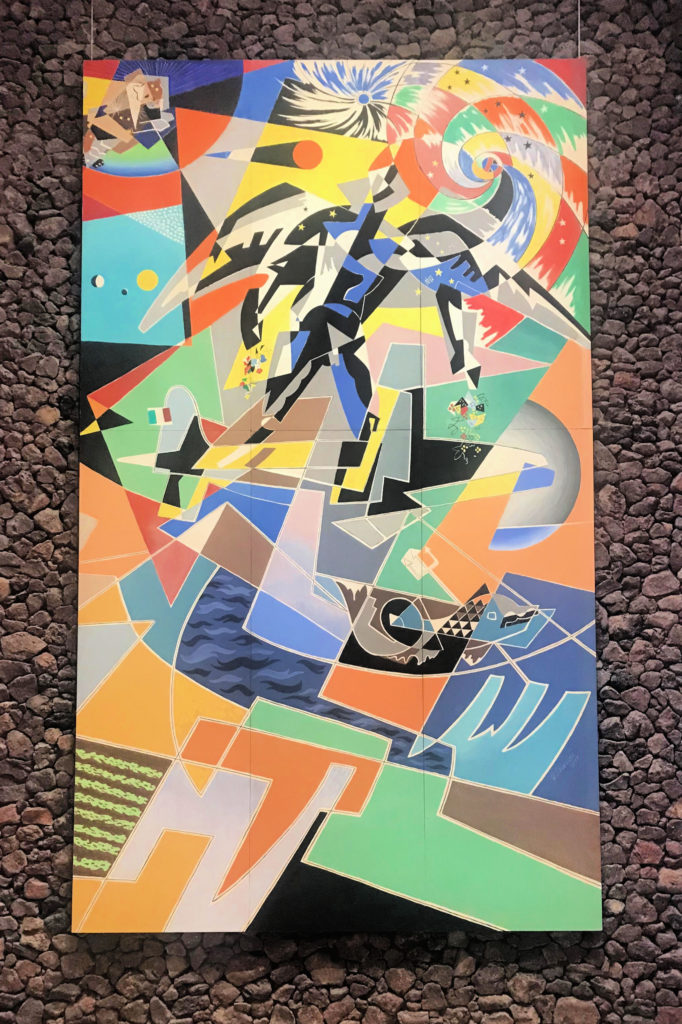
What’s not to love about “Your Dog” 2002 by Yoshimoto Nara? The giant fun-loving puppy eagerly greets you at the entrance to the museum.
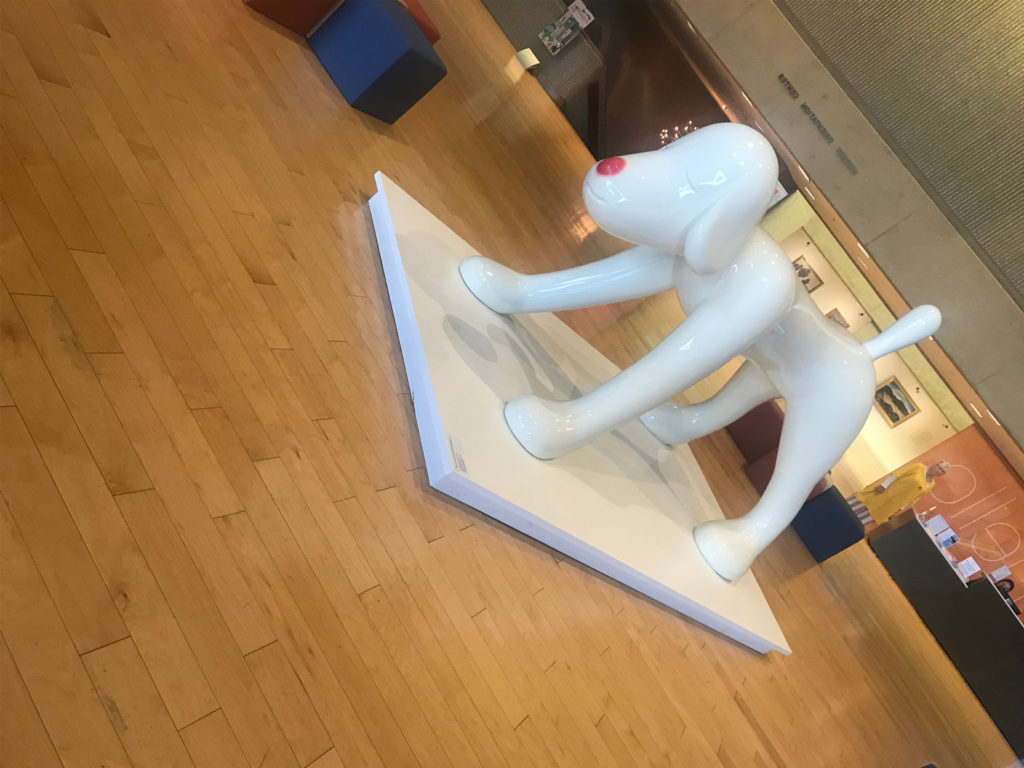
“Brave New Worlds” Temporary Exhibit
The first temporary exhibit, called “Brave New Worlds” included work from artist Gisela Colon and her fantastic blown acrylic forms. Whether the curious objects mounted to the wall, or the monoliths protruding from the floor, her sculptures are both prehistoric and futuristic at once. The soft glow of the hard plastic intensifies the duality of her work and viewers can’t help but be drawn to and mesmerized by her work.
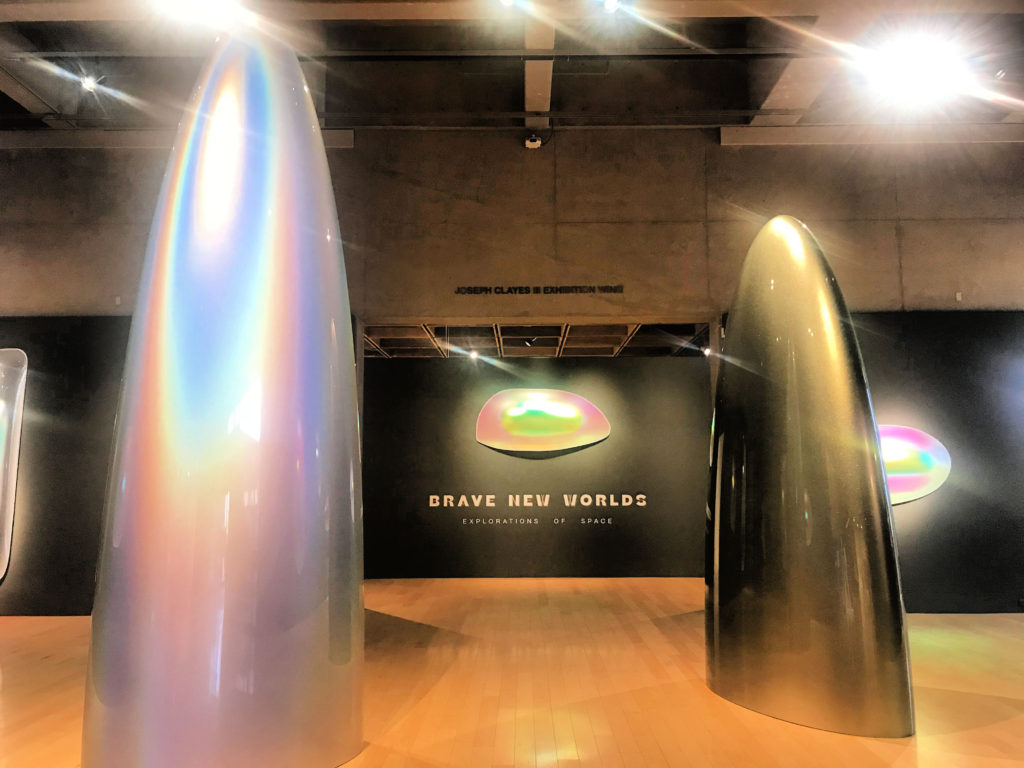
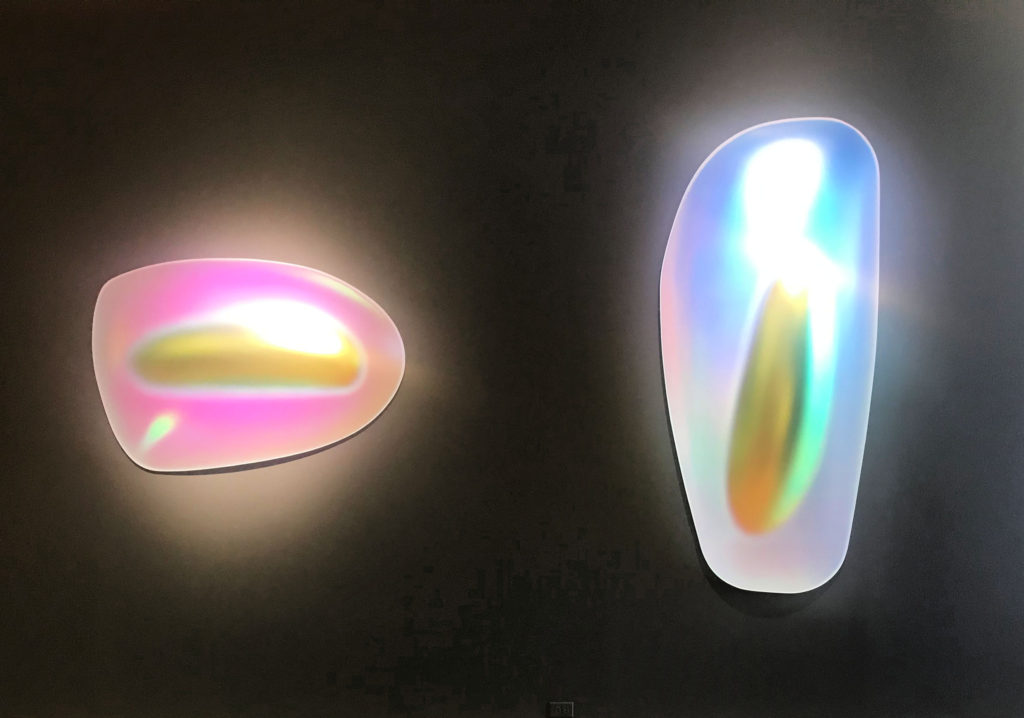
“Shaping Visions: Impressionism to Abstract Expressionism”
The second temporary exhibit was a subject near and dear to my heart called, “Shaping Visions: Impressionism to Abstract Expressionism”. A brief but impressive walk through Impressionism, Post-Impressionism, Surrealism, Dada and Abstraction – including Geometric, Expressionist and Post-Painterly modes – which spanned from the late 19th century to post-WWII. The galleries display the museum’s collection of works by modern artists in Europe and the Americas, exploring the creative approaches to each of these evolutionary “isms”. The exhibit also is interesting in that some of the works of Abstract Expressionism are self-referential: The Palm Springs Art Museum started in the 1960’s at the height of Abstract Expressionism after generous Palm Springs winter residents of the time helped found and fund the museum and donated some of the works on display. In this way, the exhibit is also a history of the museum itself.
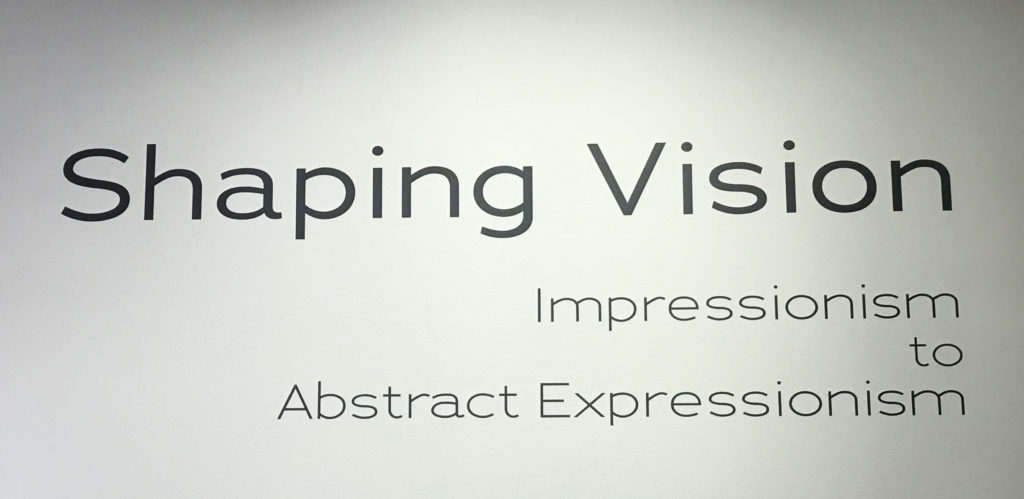
A Collection of European Impressionists
To start was a lovely collection of European Impressionist works by Van Gogh, Renoir and Rodin, to name a few. In Renoir’s “Portrait of Edmond Maître” 1871, we see the impressionist laying the foundations of future abstract expressionists – his strokes are rapid, brisk with a dark yet intimate atmosphere.
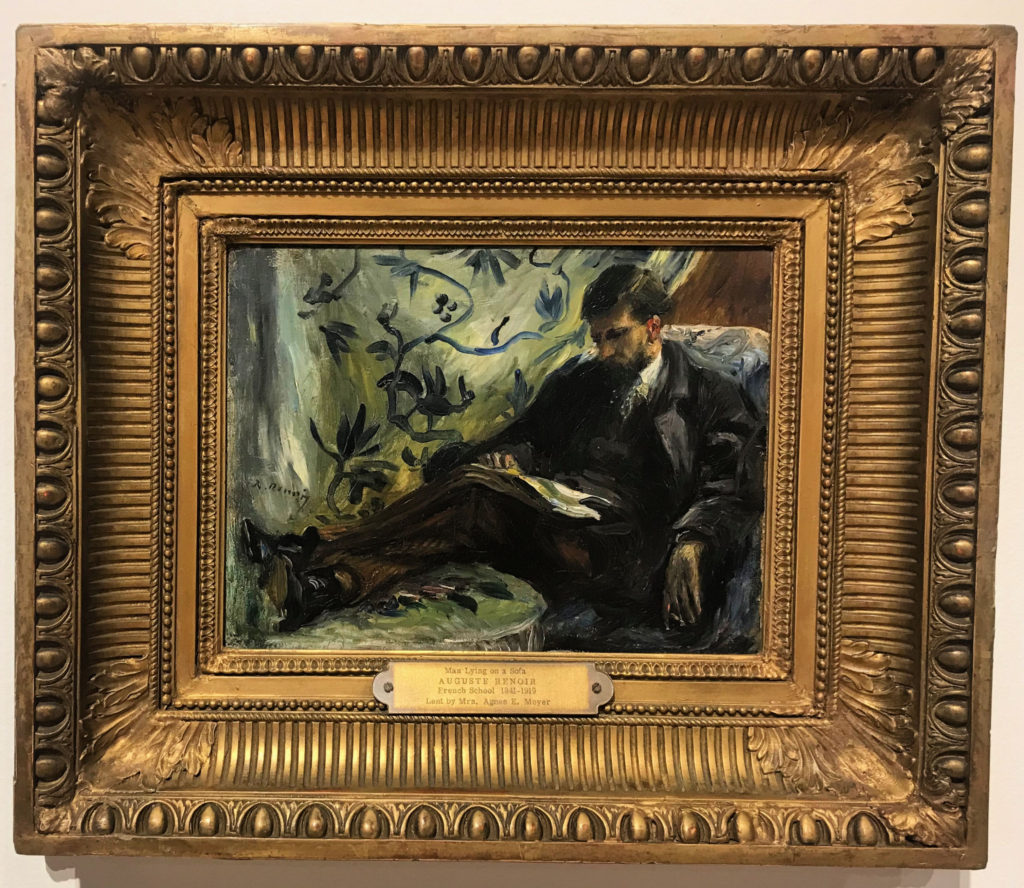
Like Van Gogh’s works at the Norton Simon in Pasadena, CA, here in his “Still Life with Oranges”, we see the impact his time in Arles in the south of France had on his painting style. Before moving to France, his work tended to be somber and moody, depicting poor people. In the sunny South of France, the colors and energy of his brush strokes burst off the canvas.
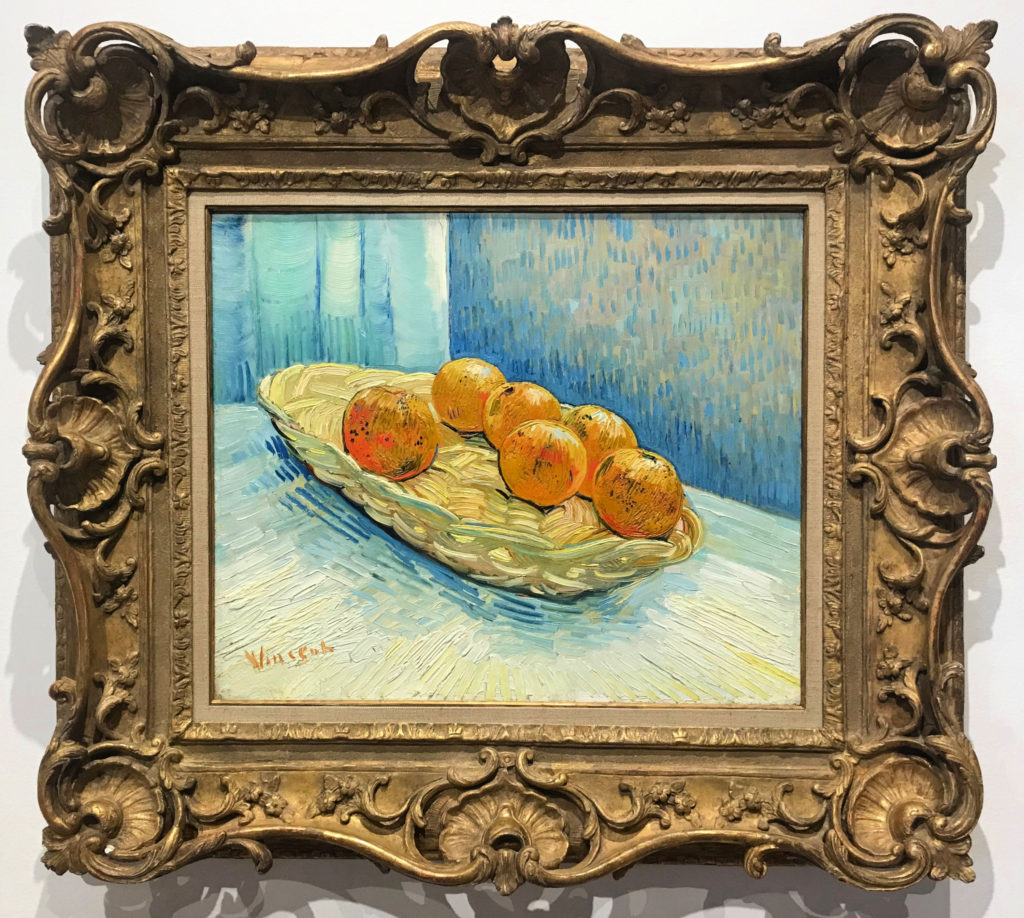
Marc Chagall’s “The Village” 1952 depicts the characteristic images from his boyhood life in Russia. The figures make up a poetic mood, heightened by Chagall’s gentle palette of pastels and bold outlines.
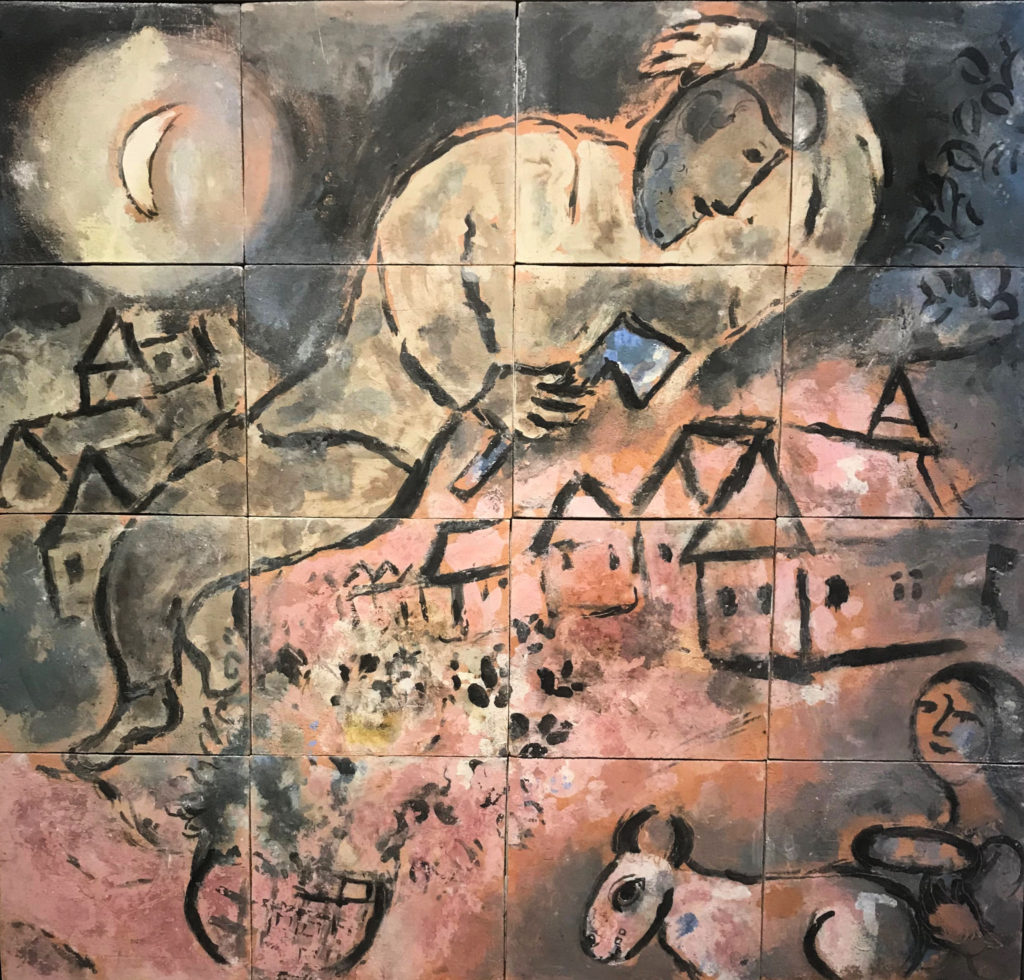
Abstract Expressionism
Mark Rothko is associated with Abstract Expressionism but is quite different stylistically from artists like Willem de Kooning and Jackson Pollock. Rather than the melodramatic styles of some abstract expressionists, Rothko delicately applied his colors in horizontal, glowing lines that eliminate all traces of the brush. In “Untitled (Yellow on Orange) no. 579”, 1957, the elusive strokes and the horizontality of the colors produces a calming effect. Rothko wrote that he “sought in painting a contemplative experience that elevates awareness out of commonplace experience onto a more transcendental plane.”
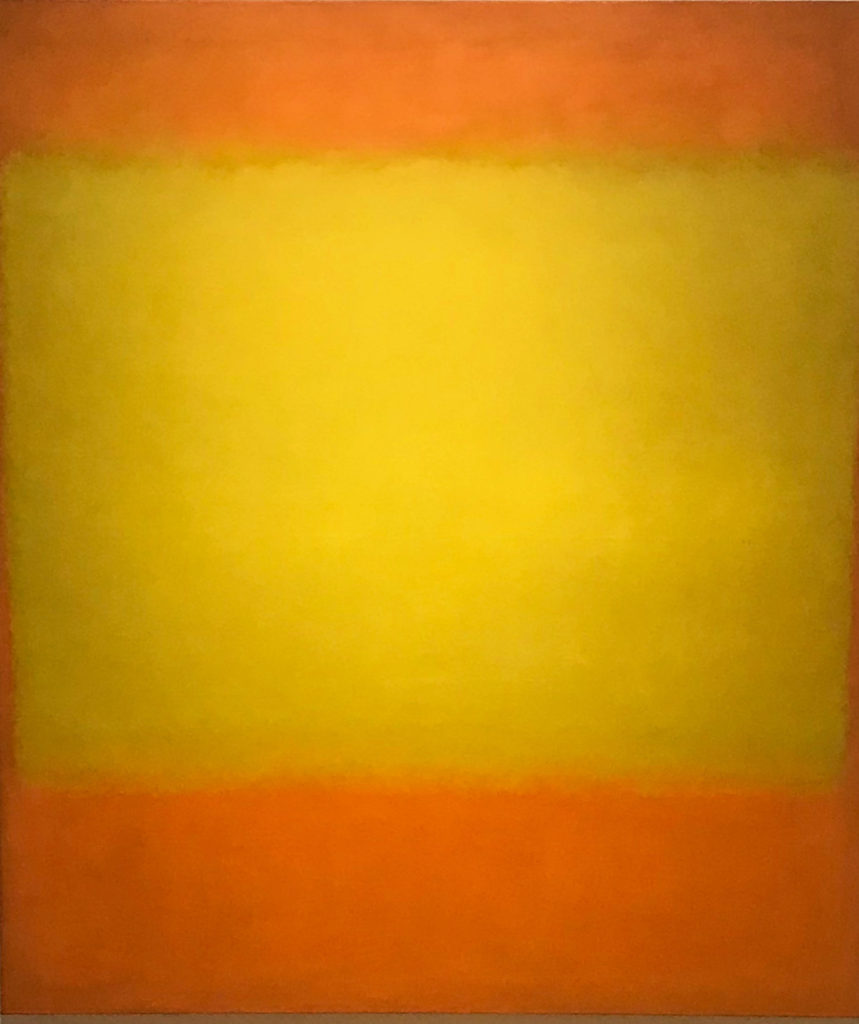
Artist Joan Mitchell
Joan Mitchell was American but spent most of her adult life in France, first in Paris then to Vetheuil, a small town near the home and gardens of French Impressionist Claude Monet. Her work perhaps most closely ties Impressionism to Abstract Expressionism. She developed her style by observing nature. Just like Monet’s paintings of Giverny garden, Mitchell’s “Untitled”, 1960 is inspired by the rich colors of the garden to produce a distinct style.
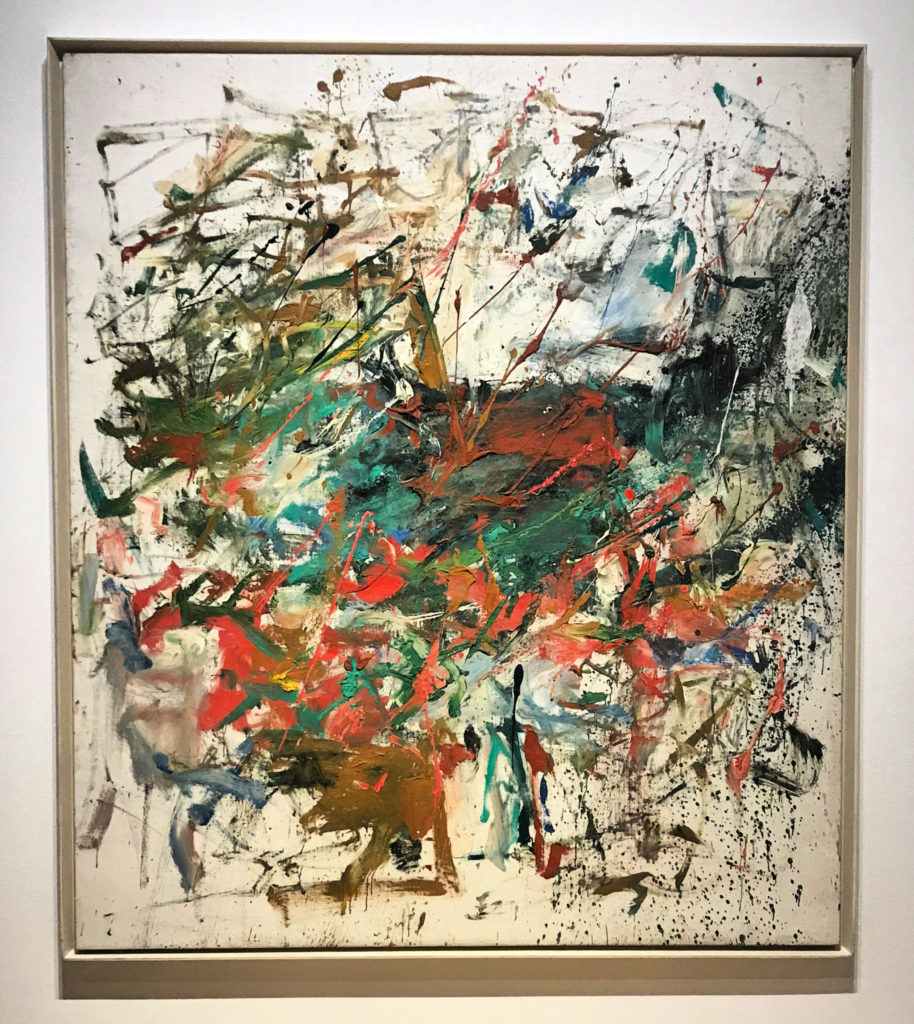
Hassel Smith’s “North of Montara #4” 1961, particularly displays the lineage back to Impressionism. His urgent brush strokes remind me of an Impressionist landscape or even Chagall’s “The Village”, above,with earthly colors and bold, dark outlines. Smith was a lover of jazz and once I read that, I could feel the rhythm in his dynamic painting.
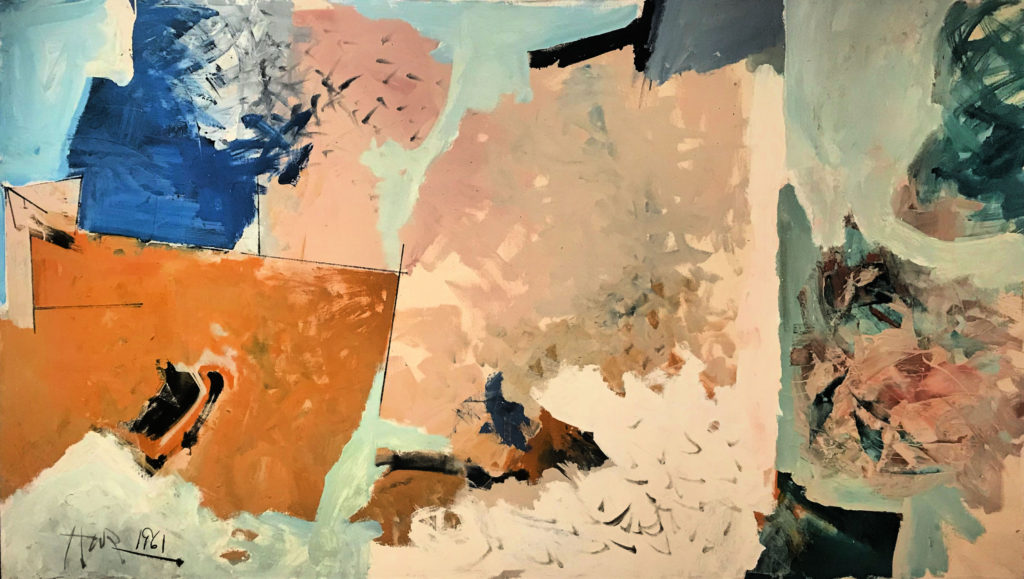
“Tres Formas”, 1964 by Gunther Gerzso is a distinctly Mexican form of abstract painting. Inspired by Mesoamerican art and architecture, Gerzso depicts sizeable geometric forms which hover in obscure, enigmatic and infinite space. From the exhibit’s description, “the porcelain-like surface and saturated, luminous color is achieved by layering thin, transparent colors and traditional glazing techniques typical of those practiced by Renaissance master paintings.”
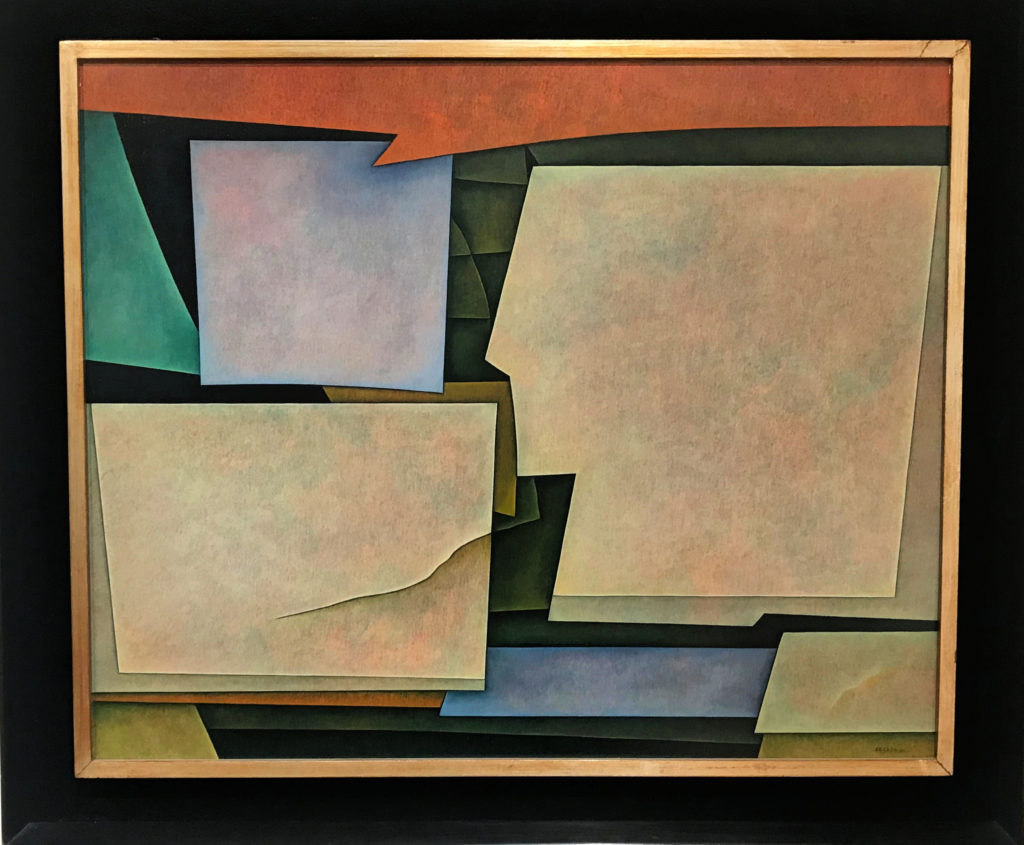
A quintessential abstract expressionist painting, “Untitled III” 1975 by Willem de Kooning, is a storm of wide brush strokes and thick paint that creates a dynamic scene. Especially intriguing was the color combination – deep blues and greens, evoking some kind of landscape, but also bright reds and pastel pinks.
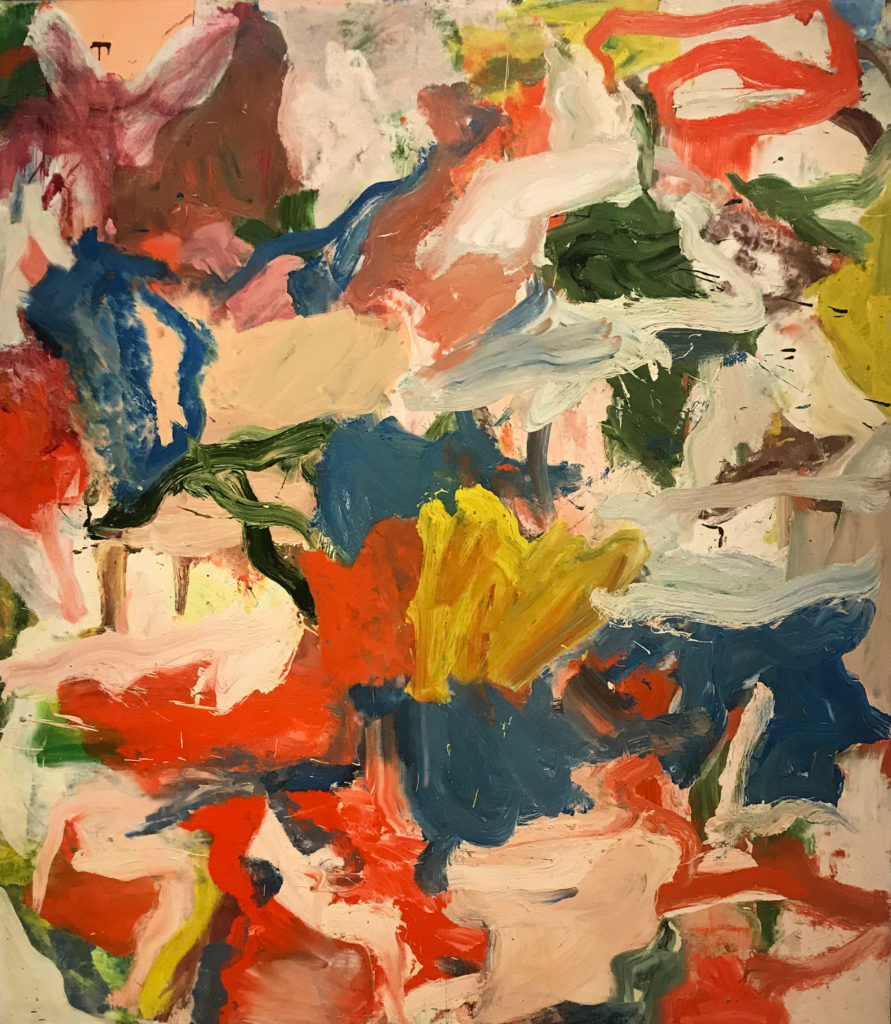
Robert Motherwell was a leading member of the New York school of Abstract Expressionism. Before committing to art, he studied and majored in philosophy, which eventually heavily influenced his work. He was particularly inspired by the “Basic Writings” of C.J. Jung, in which the psychoanalyst discusses the symbolism of the number four. In this piece, “The Big 4” 1986, the number four explodes through a hole, representing life and creativity bursting through a bold, red field.
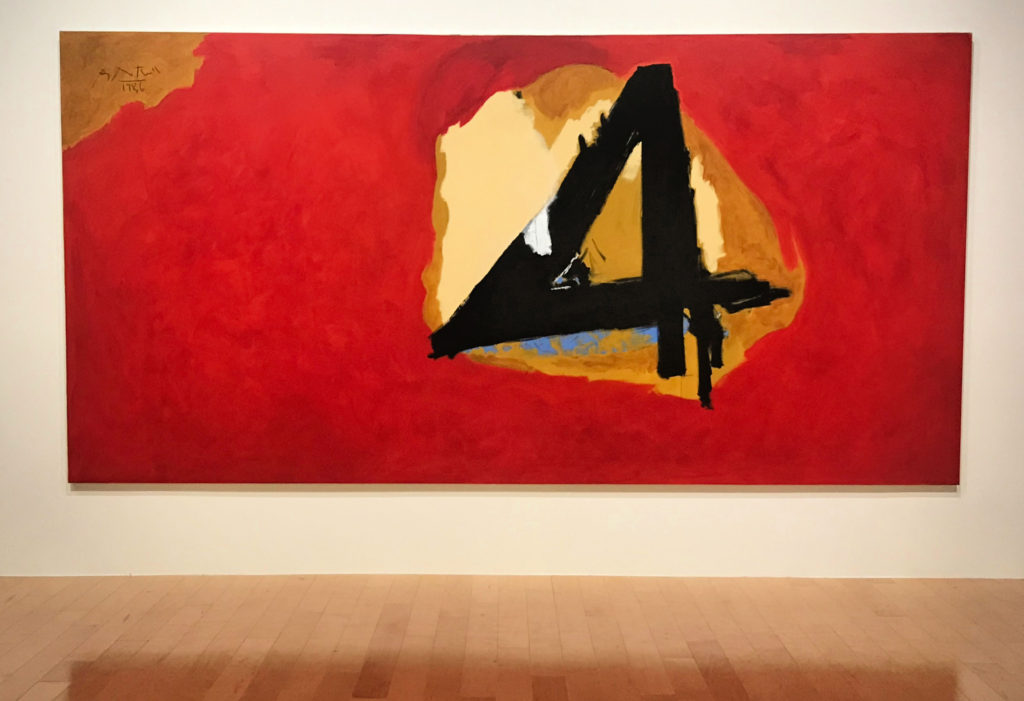
The Permanent Collection
In the permanent collection a few items caught my eye:
As its name suggests, “Growth (Croissance)” 1938 by Jean Arp, is a sculpture whose undulating shapes twist and turn in a way that a growing plant might or the way a butterfly wriggles out of its cocoon. According to the description, Arp carved a version of Growth in marble “but without its brilliant reflections it is not nearly as dynamic an object”
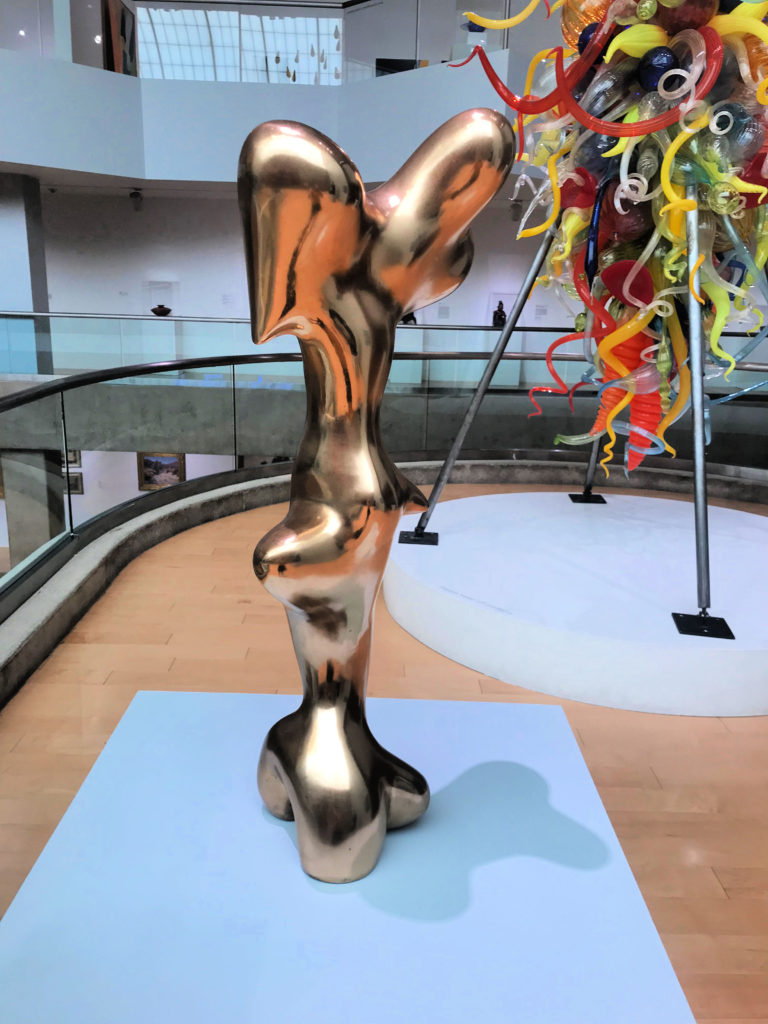
Helen Frankenthaler’s “Carousel”, 1979 is a visually stunning part of the permanent collection. She has been recognized for her innovative use of applying paint to unprimed canvases. More than 17’ wide, it is an enormous and dramatic work of energetic reds, ochres, pinks. She creates texture and dimension by layering diluted paint with melodramatic blobs and smears of pure pigment.
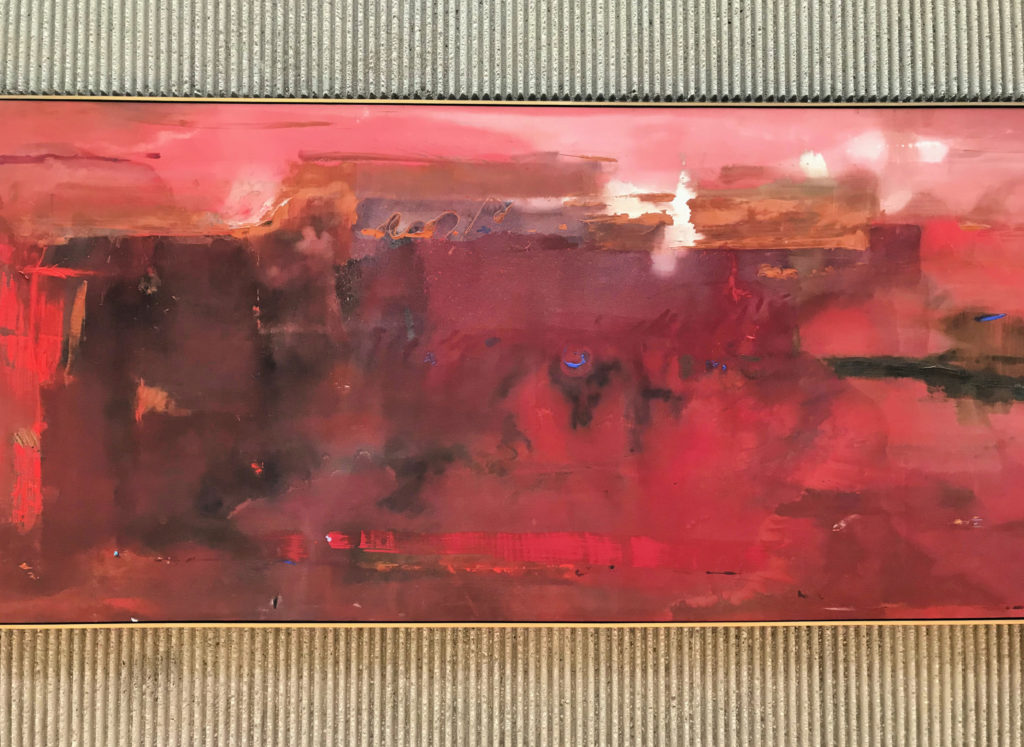
It is only fitting to end this post with “Vesper” by Nicole Chesney 2007. Inspired by the light of a desert landscape at dusk, her piece is a mesmerizing yet technical work combining glass, oil paint and aluminum. From the description, Chesney “superimposes sheer layers of color and after an intense and often arduous process of applying and removing layers of paint, the artist examines each finished layer and how it reacts to light. Through this process a quality materializes that communicates a sense of wonder similar to that felt when witnessing the natural phenomena itself.”
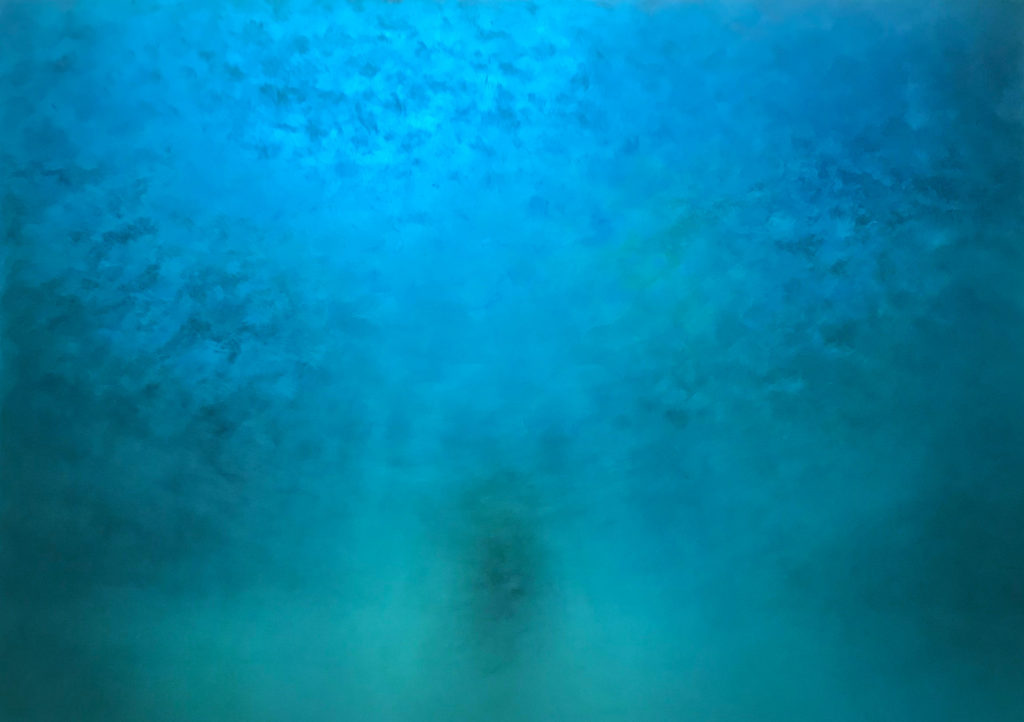
Even if your visit to Palm Springs is brief, the Palm Springs Art Museum is a must-see. Their permanent collection is exquisite and their temporary exhibits are interesting and thought provoking. Plus, they have a lovely shop with items focused on design and art. Admission is $14 for non-member adults. They have different hours depending on the season, so see their website for details.
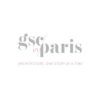
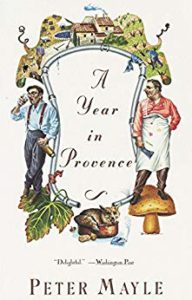
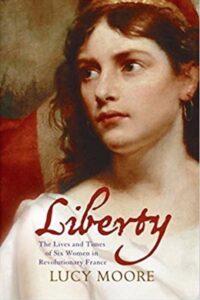

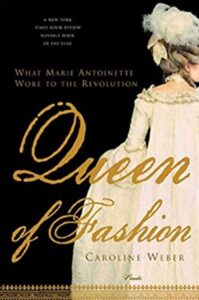
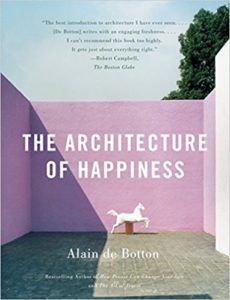

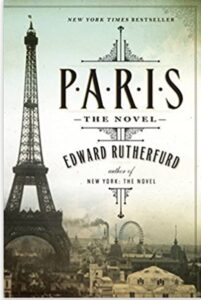

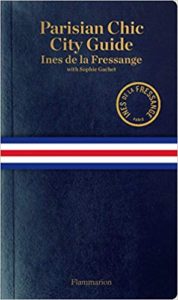
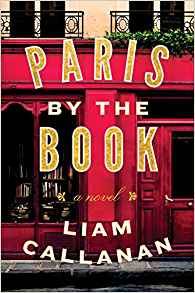


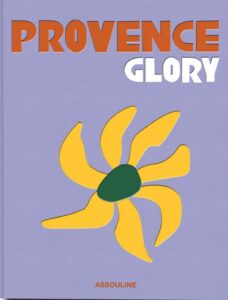
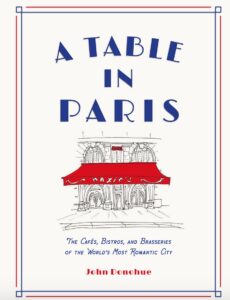

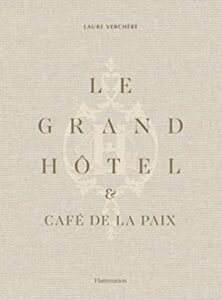
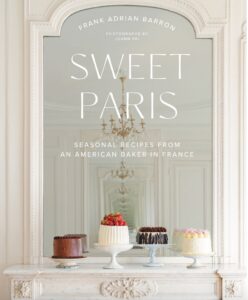
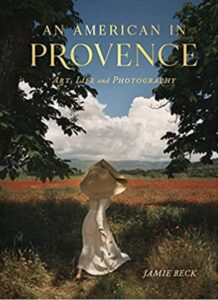
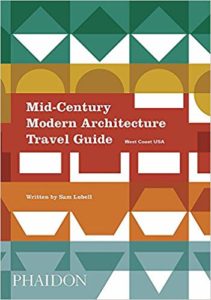
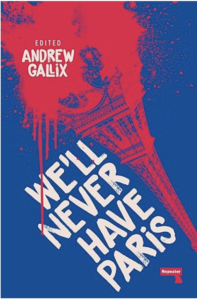
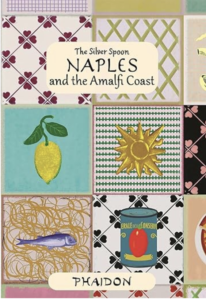

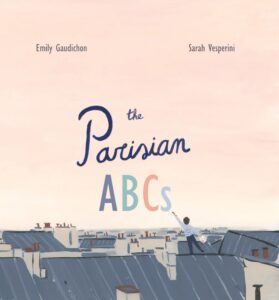
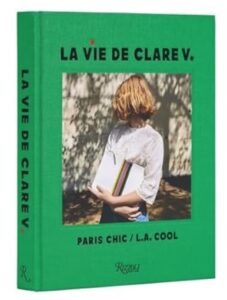
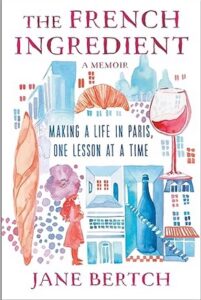
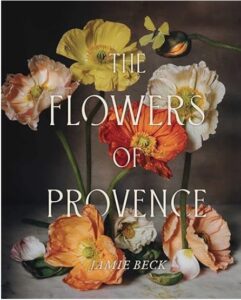

Lisa Manderino
June 27, 2019 at 8:54 amWhat a fun place to visit! I love all the art pieces! It has been a while since I have visited an art museum because I have little kids and I am afraid they will destroy something!
Susan Carey
June 27, 2019 at 9:37 amI’m not really an art person, but I did enjoy the “Your Dog ‘ piece.Guess I’m an animal person instead
Arianny Rodriguez
June 27, 2019 at 10:35 amWhat an eclectic place! Everyone can find something they like here.
Stacey
June 27, 2019 at 4:08 pmWhat a great art museum! I just got back from my first visit to California, and I hope I can go back in the next few years. I’d love to visit this museum.
Glory
June 29, 2019 at 5:17 amPalm Springs is so fun – come back in the winter when its not so hot.
Tricia Snow
June 27, 2019 at 6:32 pmAs usual, your photos are amazing! I love it!
Glory
June 29, 2019 at 5:16 amThank you!
Liz
June 27, 2019 at 8:22 pmI love visiting all kinds of museums, I’ll have to add this one to the list!
kmf
June 27, 2019 at 9:53 pmI love your blog posts…makes me feel as if I’m right there with my own personal tour guide. Beautiful images and great content!
Glory
June 29, 2019 at 5:16 amThank you so much!
Heather
June 28, 2019 at 4:30 amWhat an interesting place. My husband was an art major in college. He would enjoy this. The price is not bad either.
Julie Gazdecki
June 28, 2019 at 5:27 amNever would have thought those monoliths were made of acrylic. What a beautiful collection art they have. My girls would love it!
Lori Nielsen
June 28, 2019 at 7:16 amI can’t say that modern art is my thing, but there are some very interesting pieces here!
Briana
June 28, 2019 at 3:52 pmWhat a wonderful place to visit!! Beautiful artwork!
Sarah
June 28, 2019 at 6:22 pmLove European Impressionist art the most!
jen
June 29, 2019 at 9:22 amArt …always subjective and always the source of many discussions. Great visit! Thank you
Jordin
June 29, 2019 at 10:42 amBeautiful photographs of the works of art. Art is so relaxing to me and I love walking through exhibits.
T.M. Brown
July 1, 2019 at 12:24 pmVisiting art museums is something of which I wish we did more in our family. I love looking at paintings and discussing interpretation and colors. Great post and I love the items you showcased.
blog
April 1, 2020 at 7:44 pmGood information. Lucky me I recently found your
site by accident (stumbleupon). I have bookmarked it for later!